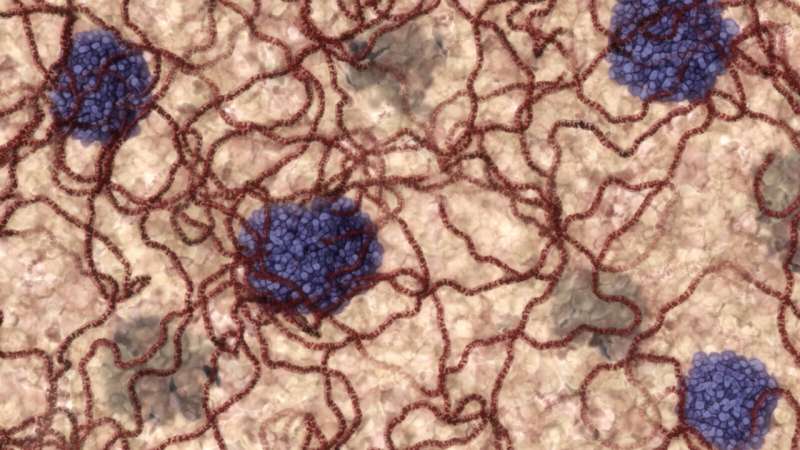Possible link between rotavirus vaccine and decline in type 1 diabetes

A drop in the number of young children diagnosed with type 1 diabetes could be associated with the introduction of routine rotavirus vaccination of Australian infants, according to a new study by Melbourne researchers.
The researchers investigated the number of Australian children diagnosed with type 1 diabetes from 2000 to 2015 and found that type 1 diabetes diagnoses in children aged 0-4 years declined from 2007—the year that rotavirus vaccine was introduced as a routine infant vaccination.
This is the first time the rate of type 1 diabetes in young children in Australia has fallen since the 1980s. While not conclusively linking the rotavirus vaccine with protection against type 1 diabetes, the discovery builds on earlier research suggesting natural rotavirus infection may be a risk factor for type 1 diabetes.
The study, a collaboration led by the Murdoch Children's Research Institute and Walter and Eliza Hall Institute clinician scientists, was published in JAMA Pediatrics today.
Decline in type 1 diabetes
Since the 1980s, the incidence of type 1 diabetes has steadily increased in Australia and worldwide, but the reasons for this increase are poorly understood. Type 1 diabetes is a serious, lifelong autoimmune condition, in which the body's immune system destroys cells in the pancreas that produce insulin, a hormone that controls the level of glucose in the blood.
By investigating the number of Australian children diagnosed with type 1 diabetes each year since 2000, the research team observed that after 2007 the rate of type 1 diabetes decreased in children aged 0-4 years, said study lead Dr. Kirsten Perrett from the Murdoch Children's Research Institute.
"The significant decrease in type 1 diabetes that we detected in young children after 2007 was not seen in older children aged 5-14. This suggests the young children could have been exposed to a protective factor that didn't impact older children," Dr. Perrett said.
"We observed the decline in the rate of type 1 diabetes in children born after 2007 coincided with the introduction of the oral rotavirus vaccine onto the Australian National Immunisation Program in 2007."
The rotavirus vaccine is routinely given to Australian infants aged 2 and 4 months to protect them against a severe, potentially life-threatening form of diarrhoea.
Exploring the connection
Professor Len Harrison from the Walter and Eliza Hall Institute, who is the study senior author, said the discovery followed on from earlier research implicating rotavirus infection in the development of type 1 diabetes.
"Twenty years ago our team revealed an association between the appearance of immune markers of type 1 diabetes in children and rotavirus infection. Subsequent studies in laboratory models suggested rotavirus infection of pancreatic cells can trigger an immune attack against the insulin-producing cells—similar to what occurs in type 1 diabetes," he said.
"While not conclusive, our latest study suggests that preventing rotavirus infection in Australian infants by vaccination may also reduce their risk of type 1 diabetes. We will be continuing this research to look more closely at the correlation, by comparing the health records of young children with or without type 1 diabetes.
"At this stage we don't yet know whether the reduction in type 1 diabetes is a permanent effect or transient, and it may only be relevant to Australian children," Professor Harrison said.
More information: JAMA Pediatrics (2019). DOI: 10.1001/jamapediatrics.2018.4578




















